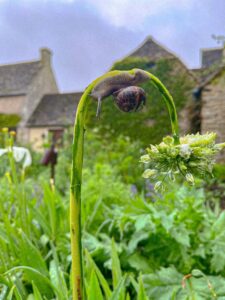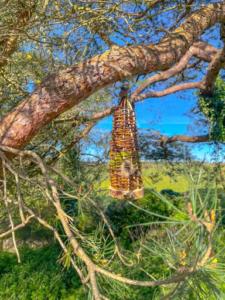The month of May includes Mental Health Awareness Week, where we are invited to step aside from the hustle and bustle of modern life to search for solace in simple pleasures.
This year’s theme is movement – and with the warmer weather finally making an appearance here in the UK, now is the perfect time to indulge in the perfect activity to boost physical and mental health – gardening.
Beyond its obvious benefits of getting out in the fresh air, producing seasonal fruit and vegetables with no chemicals and beautifying outdoor spaces for the purposes of relaxation and entertaining, gardening offers a myriad of therapeutic advantages for wellbeing.

Connecting with Nature
In today’s technology-driven society, many of us have become disengaged from the natural world. However, gardening provides an opportunity to reconnect with the earth in a tangible and meaningful way. The act of digging the soil, planting seeds, and watching plants grow fosters a profound link with nature, which has been shown to reduce stress, anxiety, and depression.
Sensory Gardening
Plants can bring more than just colour or form to your garden – especially in spring and summer. Many plants influence our wellbeing through the way we experience them. This might be the colour (calming pastels or uplifting brights), but it could also be the way the leaves feel, the scent of the flowers or even the sounds the stems and leaves make in the wind. Plants that attract pollinating insects such as bees and butterflies, can also engage our senses. Lavender, Buddleia and Philadelphus are among many varieties that bloom at this time of the year.
Cultivating Mindfulness
Gardening is a practice in mindfulness, the art of paying attention to the present moment without judgment. Whether you’re weeding, watering, or harvesting, every task in the garden requires focus and concentration. By immersing oneself in the rhythm of gardening, worries and distractions fade away, and a sense of calmness prevails.
Studies have shown that practising mindfulness through activities like gardening can reduce the repetitive and often negative thoughts that contribute to anxiety and depression.

Physical Activity and Exercise
In addition to its mental health benefits, gardening also offers a wealth of physical benefits. From digging and planting to weeding and pruning, gardening provides a full-body workout that promotes strength, flexibility, and cardiovascular health. Engaging in regular physical activity has been shown to boost mood, reduce stress, and improve sleep – all of which are essential for maintaining good mental health. Furthermore, spending time outdoors exposes us to natural sunlight, which helps regulate our circadian rhythms and boosts Vitamin D production, further enhancing our mood and overall wellbeing.
Social Connection and Community
Gardening has a remarkable ability to bring people together and foster a sense of community. Whether it’s sharing tips with fellow gardeners, participating in community garden projects, or growing vegetables on your allotment, gardening provides numerous opportunities for social connection and support. Building and nurturing these relationships can help combat feelings of loneliness and isolation, which are significant contributors to poor mental health.
In a world that often feels chaotic and overwhelming, gardening offers a sanctuary of peace, beauty, and tranquility. Beyond its practical benefits, gardening nourishes the soul, providing a therapeutic outlet for stress relief, mindfulness, and personal growth. Whether you have a few acres or a small balcony, everyone can experience the joys of gardening and reap the countless rewards it offers for wellbeing.
Here at Whatley Manor, we have a garden for all seasons, where you can take some time out to boost your mental health this May – and gain some inspiration for gardening your way to happiness. May launches the season of garden tours and our gardens are open on a selected date as part of the National Gardens Scheme.


